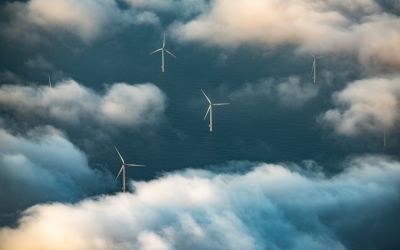IEA’s first major Energy & AI Global Conference
At major IEA conference, decision-makers from tech, energy and government underscore AI’s implications for energy security and transitions.

Leading figures from governments, the energy sector, the tech industry and civil society gathered this week for the first major international meeting of its kind addressing the deepening links between energy and artificial intelligence (AI) as the technology rapidly develops and uptake soars.
The International Energy Agency’s (IEA) Global Conference on Energy & AI on 4 and 5 December featured a high-level roundtable focused on building strategic understanding on energy and AI topics and a technical forum for experts. The two-day event brought about 300 participants to the IEA’s headquarters in Paris to discuss how to securely and sustainably meet AI’s energy needs, as well as how the technology could be used to optimise energy systems and speed up the pace of energy innovation.
“There is no AI without energy – specifically electricity. Given the pace of AI adoption, now is the time for policy makers and industry to collaborate on a vision for meeting this fast-growing source of electricity demand in a secure and sustainable manner,” said IEA Executive Director Fatih Birol. “At the same time, AI is poised to be a transformative technology for the energy sector, with the potential to accelerate innovation, improve efficiency and security, and speed up energy transitions. This first-of-its-kind IEA conference provided an important venue to advance dialogue on these topics at a critical moment.”
The rise of AI is quickly emerging as one of the most important energy trends today. AI is already helping to accelerate the discovery of new energy materials and technologies, and it can be utilised to improve how energy is produced, consumed and distributed. At the same time, expanding AI and the digital economy requires huge data centres, which can each consume as much electricity as 100,000 households. Although data centres currently account for just 1% of electricity usage globally, there are already significant challenges to the grid in areas where they are concentrated, and demand is expected to keep growing.
“Understanding the AI revolution is critical to understanding the future of energy,” Dr Birol said. “The IEA, which has long been at the forefront of analysing the links between digitalisation and energy, is uniquely placed to ensure that the significant opportunities that AI offers are fully grasped while associated risks and challenges are addressed.”
“We will do this starting with a special report on energy and AI that we will publish in the spring of 2025,” he added.
As noted in the Chair’s Summary of the conference, Canada communicated that it would work with the IEA to develop an approach to AI and energy issues, which would be formalised in 2025 under its G7 Presidency. France, as host of the upcoming AI Action Summit in February, underlined its intention to work with the IEA to shape a robust outcome on the energy-AI nexus. Korea, which will host the 2025 APEC Energy Ministerial, as well as the Clean Energy and Mission Innovation Ministerials, expressed its intention to work with the IEA to advance key discussions on the topic.
Find out more here.

_400_250_80_s_c1.jpg)




